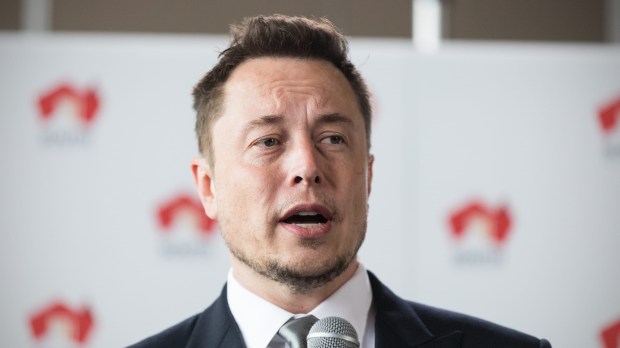Elon Musk, CEO of Tesla and SpaceX, said in a recent interview that people should have more babies, arguing the future of civilization is at stake if they don’t.
Musk made these remarks at The Wall Street Journal’s CEO Council Summit, during an interview with technology journalist Joanna Stern.
Livestreaming from a Tesla factory, while introducing his proposal for the new Tesla Bot (a robot that could be used as a substitute for human manual labor), Musk said the greatest threat to civilization is declining birth rates: “I can’t emphasize this enough: there are not enough people.”
“The greatest risk to the future of civilization”
As Brad Dress rightly points out, this was not the first time Musk expressed his concern regarding declining birth rates around the world. “In July,” Dress writes in his article for The Hill, “the entrepreneur tweeted a Wall Street Journal article about population decline and raised his concerns about the news. ‘Population collapse is potentially the greatest risk to the future of civilization,’ he wrote.”
According to the 2021 PRB’s World Population Data Sheet, during 2020 the world’s average birth rate fell from 3.2 average births per woman in 1990 to 2.3 in 2020 —almost a whole percentage point in three decades. And while other estimates predict the world population will peak at around 9.7 billion by 2050 (the world’s current population being 7.8 billion) recent research forsees an impending decline to 8.79 billion by 2100, according to a study published in The Lancet.
The study, which considers different variables such as fertility and mortality rates, migration, food production, and other population scenarios, focused on projections for the five largest countries in 2100 — India, Nigeria, China, the United States, and Pakistan. In the U.S. census figures show the population has climbed just 7 percent from 2010, falling short of expectations. The situation looks even more dire elsewhere. The study forecasts that in around 23 countries (including Japan, Thailand, Spain, and Ukraine) populations are expected to decline by 50% or more.
Overstating the threat?
For some, Musk’s words might seem excessive. Statistics do show how in less than 100 years the world’s population has nearly quadrupled, going from a global population of 2 billion to its current almost 8 billion today. And while it is true that world population growth rate has indeed declined from 2.2% per year 50 years ago to 1.05% per year today. Musk’s statement (“If people don’t have more children, civilization is going to crumble. Mark my words”) is remarkable, especially considering he is developing robots specifically designed to substitute human workers.
What kind of collapse is Musk referring to? If one were to speculate, since the WSJ article Musk tweeted sees population growth only as a driver of the economy, one could say he thinks of human beings merely as necessary to make up the workforce that sustains the economy.
Musk is certainly a controversial figure. Currently the richest person in the world, with a net worth of $251 billion according to the Bloomberg Billionaires Index, he is also the father of six. He has received harsh criticism from parents and would-be-parents who lack the resources to provide their families with, at least, the bare minimum. His remarks are especially offensive for some, considering Musk’s own attitude towards paying taxes and respecting workers’ rights. Martin Farrer’s piece for The Guardian explains how Robert Reich, who served as labor secretary during the Clinton administration, said Musk “illegally threatened to take away stock options if employees unionized,” referring to a 2019 National Labour Relations Board finding regarding a tweet in which Musk wrote: “Why pay union dues & give up stock options for nothing?” Also, as Felicia Hou explains in her article for Fortune, a 2018 ProPublica investigation revealed that Musk, who was at the time the second-richest person in the world, paid nothing in federal income taxes that year, and less than $70,000 in taxes in 2015 and 2017. The cherry on top: he has received $4.9 billion in government subsidies over the last two decades — while declaring himself anti-subsidy.
Anti-natalists (including Prince Harry and Meghan Markle, who have publicly said they will only have a maximum of two children “to protect the planet”) also oppose Musk, arguing population growth has directly impacted the environment. Several different organizations point at statistics claiming more resources have been consumed in the last 50 years than in the whole history of humanity: as population dramatically increases, resources deplete, so intensive farming methods (which have an adverse effect on the environment) need to be used.
“Children aren’t just emitters of carbon”
However, as Sigal Samuel’s article for Vox explains, “having fewer kids will not save the climate […] The problem with most studies on the climate impact of various lifestyle decisions is that they don’t account for likely changes in government policy in the future. But climate policy will almost certainly get much stricter over the course of our children’s and grandchildren’s lifetimes.” These sorts of policies, Samuel writes, “limit how much environmental damage our descendants can do.” It is here where companies like Musk’s Tesla can play a vital role, making “alternative” energies widely available.
As emissions per person are trending downward in most rich countries (even in the U.S., which is still the world’s worst emitter per capita, emissions have been declining since 2005), it is important to remember (as Samuel does) that “children aren’t just emitters of carbon. They’re also extraordinarily efficient emitters of joy and meaning and hope. Those sentiments are what will hopefully motivate us to keep pushing for the changes our world desperately needs.”

